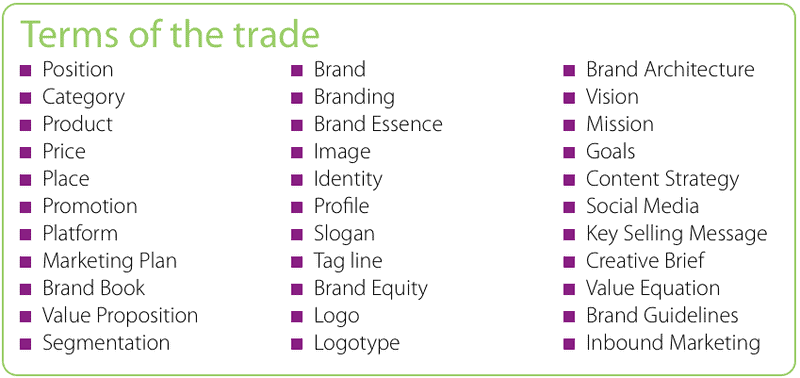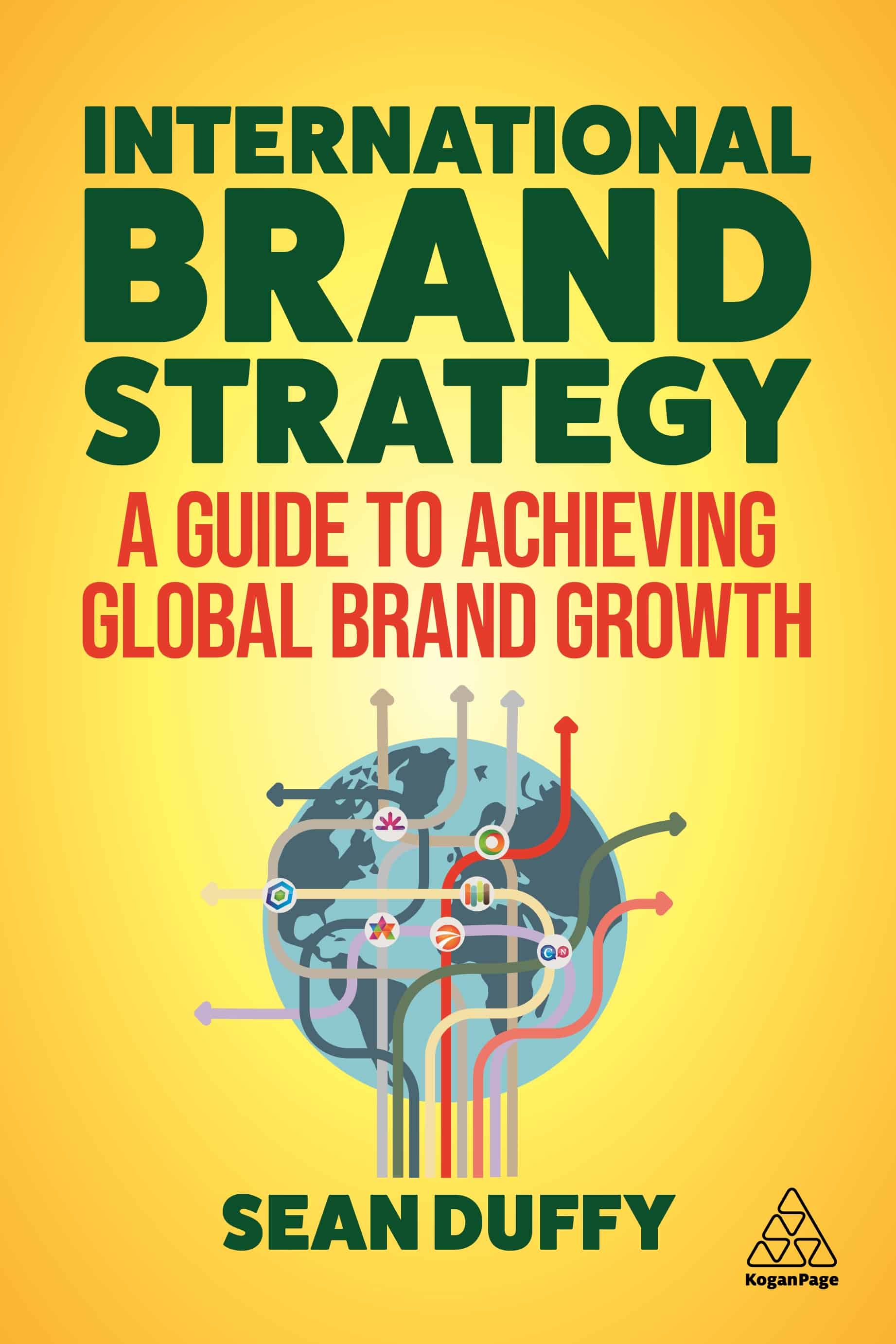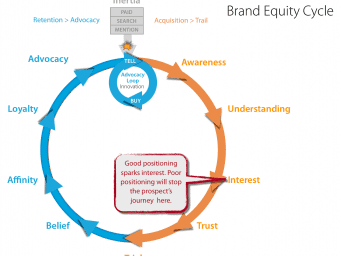The illusion of communication and how to prevent it
How to create your own marketing micro-profession Before getting involved in advertising, I had planned on attending medical school. A lo...
2 Jan 2025 6624 ViewsHow to create your own marketing micro-profession
Before getting involved in advertising, I had planned on attending medical school. A lot of my pre-med training focused on establishing a very precise foundation of language to describe all things medical. Then I got a job in an ad agency. One of my first observations as a young marketing professional was that marketing was not a profession at all: A skilled trade, perhaps, but not a profession.
As a marketer, you may be put off by this observation. I intend no disrespect. In fact, I believe there is real business value in accepting this insight. It is only by recognizing the limitations and challenges associated with marketing that we are able to work around them. Most prominent among those limitations is our lack of a common vocabulary. That limits our ability to work towards common goals.
What is illusion of communication in marketing?
 Plato recognized this as a problem when he said “the beginning of wisdom is the definition of terms”. But I like the way Mahan Khalsa puts it: “The Greatest enemy of communication is the illusion of it.” (Lets Get Real or Lets Not Play). I think this is a good description of what’s happening in a lot of marketing departments today: the illusion of communication.
Plato recognized this as a problem when he said “the beginning of wisdom is the definition of terms”. But I like the way Mahan Khalsa puts it: “The Greatest enemy of communication is the illusion of it.” (Lets Get Real or Lets Not Play). I think this is a good description of what’s happening in a lot of marketing departments today: the illusion of communication.
The problem is that unlike accounting, law or medicine; marketing, as a discipline, does not have a common vernacular. This is not to say we don’t have common words, we have plenty of those. We just don’t have a common understanding of what those words mean in day-to-day practice.
An example of communication illusion in marketing
For example, if I phoned an accountant in Singapore and asked for a profit & loss statement I’m pretty sure what I’m going to receive. But if I asked the marketer down the hall to give me a brand architecture or positioning statement, I have no idea what I’m going to get back.
Some common marketing terms that are often interpreted in various ways are listed below. I’m sure you recognize many of them, but it’s likely that the meaning you attach to these words is different from how another marketer would interpret them, causing significant miscommunication if you were to work together.
Differing words used for the same concepts (i.e. branding), isn’t the only problem within marketing departments. In the majority of cases the words used are masking the fact that there is no conceptual base at all for many activities in the marketing department. Which, put another way means you have a lot of busy people creating the illusion of marketing as Mahan Khalsa might say. Multiply this inefficiency in communication by the millions of people working in the field today and you can imagine the cost to companies and their brands. Some companies have figured this out and found an effective way to overcome the chaos.
How to create a micro-profession in your department?
Clients who handle this best seem to be those who create “micro-professions” within their department. Don’t wait for your local marketing association to change the marketing industry. Don’t even wait for your company or ad agency to do it. If you want to practice professional marketing then create a micro-profession within your department. Take the rules that apply to a true profession and unify them within your own team. If you don’t have the resources to create a “micro-profession” in-house, there are branding companies who can help you set up and maintain such programs at a reasonable cost.

1. Define. Start by establishing uniform marketing practices, principles and terminology. The world’s best marketing organizations always seem to have a well-defined approach and vernacular where they take basic marketing principles, practices and terminology and make them their own. This can be as detailed as you want or need it to be depending on how customized you feel your group’s approach needs to be. My advice here is to not get too bogged down reinventing the wheel. Find an approach or hire someone to find an approach that makes sense for you and go with it. You can modify it as you use it.
2. Make marketing info accessible. Once you decided what best practices you will follow, what marketing concepts you endorse and the vocabulary with which to communicate them, make sure this information is easily accessed by your team. Set up an intranet or wiki to host your glossary of terms and concepts. Provide strategic guidelines for each of your brands that clearly explain each brand’s position, target, selling messages and related support as well as graphic guidelines and other relevant information.
3. Train, test & vet. As with any profession, clients who are serious about marketing offer regular, compulsory training to help the marketers maintain their edge. They test team members as part of their regular employee evaluation and reward them for progress. Many certify those who reach a certain level of accomplishment. New employees are hired on the basis of their marketing knowledge and are put through training to bring them up to speed and keep them there. Inevitably this process will reveal that some members of the team are not up to speed. This can be tough for managers who may need to encourage these employees to explore careers in other departments.
4. Maintain. Our consultants have set up these programs for several global clients, usually in preparation for a big launch or the arrival of a new marketing manager. We create an approach, train, and establish on-line tools. Then, in some cases, we walk away. Six months later the campaign is over, the marketing manager has moved on, the training is forgotten and the online tools rarely used. That’s because the exercise was treated as an event as opposed to an ongoing process. These programs tend to work best with clients who are focused on ongoing maintenance and follow-through. The companies who succeed at this are committed long-term. They do not treat the creation of a micro-profession as an event, but rather as an ongoing process that they budget for each year.
So in these times of Marketing Department’s tightening their belts and trying to cut waste, I suggest you consider what the illusion of communication may be costing your department, your company and your brand. A little investment in professionalism may yield big dividends down the road.
Like this post? You'll find more marketing insights in my new book: International Brand Strategy: A guide to achieving global brand growth, now available from booksellers globally. Order your copy here.






